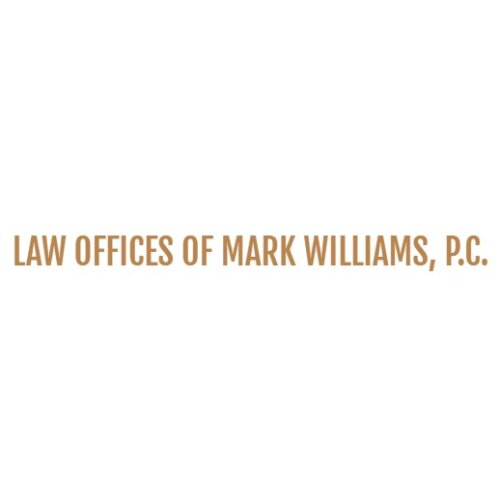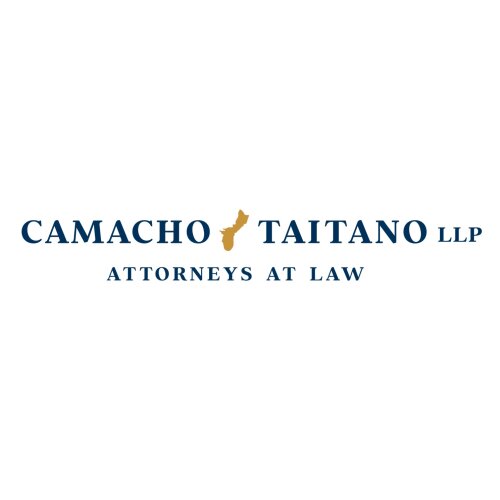Best Renewable & Alternative Energy Lawyers in Guam
Share your needs with us, get contacted by law firms.
Free. Takes 2 min.
Or refine your search by selecting a city:
List of the best lawyers in Guam
About Renewable & Alternative Energy Law in Guam
Guam, as a U.S. territory in the Western Pacific, has a growing interest in renewable and alternative energy due to its remote location and reliance on imported fossil fuels. Renewable and alternative energy law in Guam refers to the system of regulations, policies, and incentives that govern the generation, distribution, and use of energy sources such as solar, wind, biomass, and hydroelectric power. These laws are designed to encourage clean energy development, reduce dependence on imported oil, lower greenhouse gas emissions, and promote energy security for the island’s population.
Why You May Need a Lawyer
Legal professionals play a critical role in guiding individuals, businesses, and organizations through the complexities of Guam’s renewable and alternative energy landscape. Common reasons you may need a lawyer include:
- Navigating complex permitting and compliance requirements for installing solar panels or wind turbines
- Drafting or reviewing contracts for energy supply, equipment installation, or maintenance
- Understanding tax credits, rebates, and other incentives for renewable energy projects
- Handling disputes over land use, property rights, or utility interconnection
- Negotiating power purchase agreements or net metering arrangements
- Ensuring compliance with both local and federal energy regulations
- Advising on environmental impact assessments and mitigation requirements
- Representing clients in regulatory hearings or before utility commissions
Seeking legal advice early can help avoid costly mistakes and ensure successful project completion.
Local Laws Overview
Several key laws and regulations shape the renewable and alternative energy sector in Guam:
- The Guam Comprehensive Renewable Energy Public Law encourages renewable energy development by setting renewable portfolio standards for utilities and mandating certain percentages of energy generation from renewables.
- Net metering laws allow residents and businesses who generate their own electricity (typically with solar panels) to send excess power back to the Guam Power Authority (GPA) grid and receive bill credits or compensation.
- The Guam Energy Code, part of the Guam Building Code, requires new construction and major renovations to consider energy efficiency and integration of renewable energy technologies.
- Environmental review policies require assessments of the impact of larger renewable energy installations, helping to protect natural resources and ensure sustainable development.
- Incentive programs may be available at various times to help subsidize the cost of installing renewable energy systems for qualifying individuals or businesses.
It is important to consult local statutes and the Guam Power Authority for updated regulations, as rules and incentives can change based on local and federal policy adjustments.
Frequently Asked Questions
What types of renewable energy are most common in Guam?
Solar energy is the most widely used renewable energy source, both for residential and commercial applications. There is also growing interest in wind and biomass energy, but solar remains the most accessible due to Guam’s tropical climate.
Do I need a permit to install residential solar panels?
Yes, permits are generally required for solar installations, especially to ensure compliance with building, safety, and electrical codes. Applications are submitted through the Department of Public Works and possibly Guam Power Authority, depending on the project.
What is net metering and how can I benefit from it?
Net metering allows energy consumers who generate their own electricity to send unused power back to the grid. In exchange, they receive credits or compensation from the Guam Power Authority, helping lower electricity bills.
Are there any tax credits or incentives for renewable energy systems in Guam?
From time to time, local or federal programs may offer tax credits, rebates, or incentive payments for qualifying renewable energy projects. Availability varies, so it is best to check with authorities or consult a lawyer for current opportunities.
How do I connect my renewable energy system to the Guam Power Authority grid?
You must follow certain technical and safety standards and submit an interconnection application to the Guam Power Authority. Approval is required before connecting to ensure grid stability and safety.
Can businesses in Guam develop large-scale renewable energy projects?
Yes, businesses can pursue large-scale projects, but they must comply with environmental regulations, land use requirements, utility agreements, and permitting processes. Legal counsel is especially important for these more complex initiatives.
What are the legal risks if I do not comply with energy regulations?
Noncompliance can result in fines, project delays, denial of interconnection, or even orders to dismantle unapproved installations. Proper legal guidance can help prevent these issues.
Who regulates renewable energy in Guam?
Regulation primarily falls under the Guam Power Authority, Department of Public Works, and certain environmental agencies. Some federal regulations also apply, especially for larger projects.
Do renewable energy installations affect property values?
Renewable energy installations, particularly solar panels, can often enhance property values by reducing long-term energy costs. However, land use and aesthetic considerations may affect value in some situations.
What should I look for in a renewable energy contract?
Pay attention to system warranties, maintenance clauses, liability terms, and payment schedules. It is wise to have a lawyer review any contract to ensure your rights and interests are protected.
Additional Resources
- Guam Power Authority (GPA): The primary utility provider and regulator for energy generation, grid connections, and net metering programs.
- Guam Department of Public Works: Oversees permitting and compliance for construction and system installation.
- Guam Environmental Protection Agency: Reviews environmental impacts and issues related to sustainable energy projects.
- U.S. Department of Energy’s Office of Island Energy: Provides policy guidance, technical assistance, and information on federal programs.
- Local renewable energy installers, industry groups, and non-governmental organizations may also be able to offer practical advice and support.
Next Steps
If you are considering a renewable or alternative energy project in Guam, or if you face legal or regulatory issues in this field, here is how to proceed:
- Clarify your project goals, including the type and scale of energy generation.
- Gather information from reputable sources, such as governmental agencies and local utility providers.
- Document your property rights, contracts, and any correspondence with agencies or installers.
- Consult a qualified lawyer with experience in renewable and alternative energy law in Guam. An attorney can guide you through permitting, compliance, contracts, and dispute resolution.
- Keep up to date with changes in laws and incentives, as the regulatory landscape can evolve based on local and federal priorities.
Expert legal advice can help ensure your project’s success, safeguard your interests, and keep you compliant with all applicable laws and regulations in Guam’s renewable energy sector.
Lawzana helps you find the best lawyers and law firms in Guam through a curated and pre-screened list of qualified legal professionals. Our platform offers rankings and detailed profiles of attorneys and law firms, allowing you to compare based on practice areas, including Renewable & Alternative Energy, experience, and client feedback.
Each profile includes a description of the firm's areas of practice, client reviews, team members and partners, year of establishment, spoken languages, office locations, contact information, social media presence, and any published articles or resources. Most firms on our platform speak English and are experienced in both local and international legal matters.
Get a quote from top-rated law firms in Guam — quickly, securely, and without unnecessary hassle.
Disclaimer:
The information provided on this page is for general informational purposes only and does not constitute legal advice. While we strive to ensure the accuracy and relevance of the content, legal information may change over time, and interpretations of the law can vary. You should always consult with a qualified legal professional for advice specific to your situation.
We disclaim all liability for actions taken or not taken based on the content of this page. If you believe any information is incorrect or outdated, please contact us, and we will review and update it where appropriate.
Browse renewable & alternative energy law firms by city in Guam
Refine your search by selecting a city.










